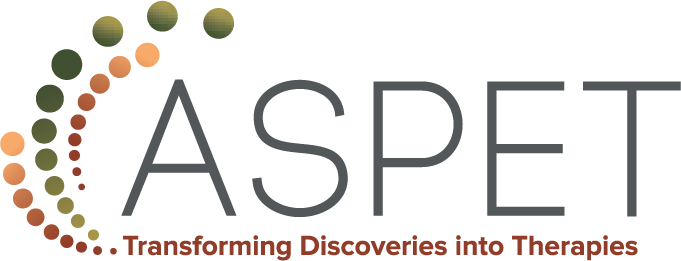A Conversation with ASPET’s Young Scientists Committee Chair Saranya Radhakrishnan, PhD
 Saranya Radhakrishnan, PhD, is the Chair of ASPET’s Young Scientists Committee. In this role she supports the development of future pharmacologists and ASPET members and provides leadership experience to trainees within ASPET. The committee organizes and supports representation of trainees at the committee level, unifies trainees across divisions, and communicates through other committees and with senior ASPET officers. Dr. Radhakrishnan is a Postdoctoral Research Fellow at the National Institute of Mental Health (NIMH) and received her PhD from Purdue University. She has been a member of ASPET since 2019 and also serves on the Animals in Research Policy subcommittee.
Saranya Radhakrishnan, PhD, is the Chair of ASPET’s Young Scientists Committee. In this role she supports the development of future pharmacologists and ASPET members and provides leadership experience to trainees within ASPET. The committee organizes and supports representation of trainees at the committee level, unifies trainees across divisions, and communicates through other committees and with senior ASPET officers. Dr. Radhakrishnan is a Postdoctoral Research Fellow at the National Institute of Mental Health (NIMH) and received her PhD from Purdue University. She has been a member of ASPET since 2019 and also serves on the Animals in Research Policy subcommittee.
Dr. Radhakrishnan discusses her growing involvement with ASPET and the importance of mentoring, with The Pharmacologist.
How did you get started in pharmacology?
My research journey has spanned several fields, beginning in bioengineering, and culminating in neuropharmacology. As an undergraduate in bioengineering in India, I had the chance to participate in a semester abroad program, which ignited my passion for research. This experience led me to work in cancer genomics and neurodevelopment as a post-baccalaureate researcher. My interdisciplinary graduate studies further expanded my expertise in neuroscience and chemical biology. Currently, my postdoctoral work at NIMH leverages this chemical biology background to explore neuropharmacology, with a focus on understanding the trafficking mechanisms and regulation of neurotransmitter transporters.
How did you first get involved with ASPET?
During graduate school, I attended Experimental Biology meetings as a member of ASBMB, but I also embraced the opportunity to attend several intriguing ASPET sessions. As my research transitioned into the pharmacology sphere, I was drawn to ASPET’s programming and decided to take advantage of the resources and community it offered.
The Washington Fellows program particularly appealed to me as someone interested in science policy, and it ultimately influenced my decision to become an ASPET member. Although I wasn’t accepted into the program on my first try, ASPET’s welcoming environment encouraged me to stay involved, and I finally had the opportunity to participate in the Washington Fellows program in 2022, which deepened my engagement with the society. Over time, I became more involved, participating in the Animals in Research Science Policy subcommittee, the Young Scientists Committee (YSC) and had the opportunity to chair sessions at the ASPET Annual Meeting.
What do you want the ASPET membership to know about you and your ideas on how to move the organization forward during your term?
As a representative for young scientists, I am committed to fostering a more inclusive and supportive environment for early-career scientists. I believe strongly that access to mentorship, networking, and professional development opportunities will empower young scientists to thrive. My passion lies in expanding networks and mentorship opportunities for early-career pharmacologists within ASPET, ensuring that they have the resources and connections they need to succeed.
I aim to enhance collaboration across ASPET committees, encouraging innovative programming that supports our members at all stages of their careers. The current YSC cohort is particularly enthusiastic and full of ideas for programming designed to support the professional development of early-career researchers, from undergraduates to postdoctoral fellows and independent research scholars. Together, we can create an environment that nurtures the next generation of pharmacologists and advances our field.
What has been your proudest accomplishment in your career so far?
Some of the proudest accomplishments in my career, beyond my scientific contributions during graduate and postdoctoral work, have been mentoring other trainees who have gone on to pursue graduate research careers of their own. I was fortunate to have had supportive mentors throughout my scientific journey, and I’m grateful for the opportunity to now be on the other side of mentorship, helping younger trainees embark on their own research careers.
What advice would you give young scientists who are just starting out in their careers?
To young scientists, I would say: the path ahead is full of challenges, and it’s vital to remain resilient and embrace failure as a learning opportunity. Surround yourself with mentors and peers who both support and challenge you. Maintaining a strong support network in your life is crucial and don’t hesitate to reach out for help when you need it. As science becomes increasingly collaborative, building and leaning on your network will enhance your career.

